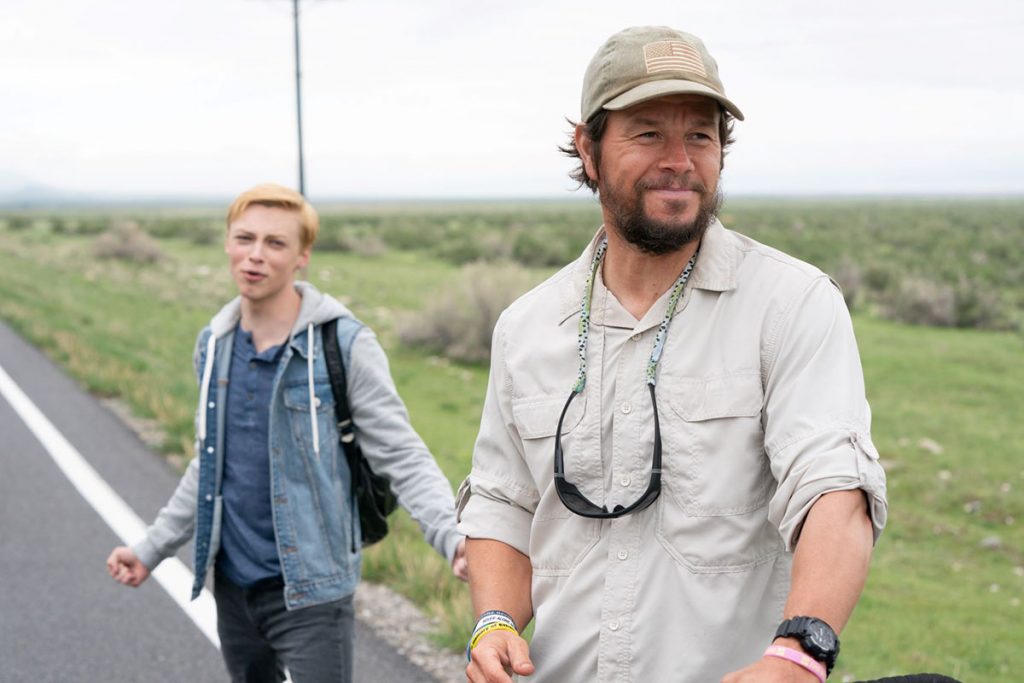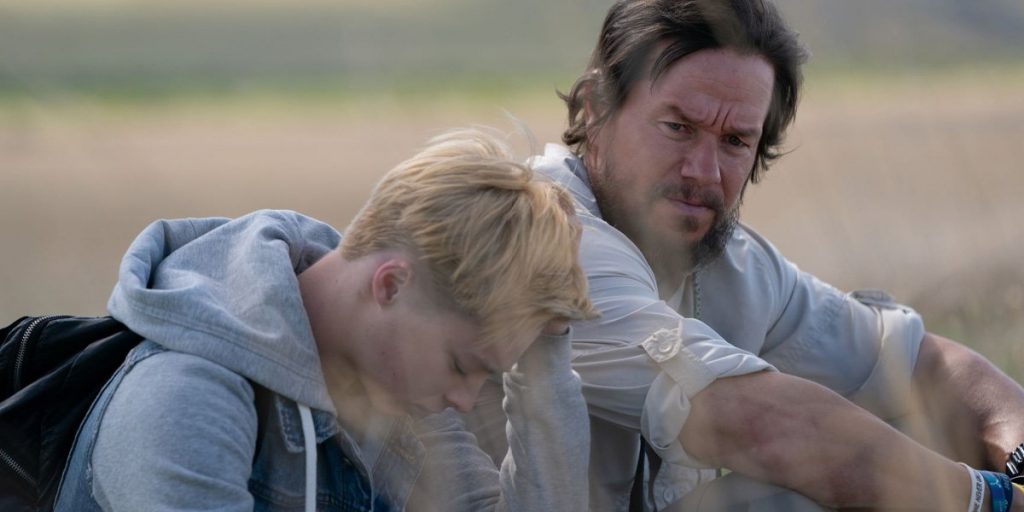Joe Bell is propelled by a stellar cast and several compelling thematic ideas, though some of them are not realized as effectively as they could be.
I don’t know about the rest of you, but I typically find Hollywood movies that are “based on a true story” to be a bit of a minefield, and often difficult to discuss. I also find this to be especially true when the events on which the film is based are recent and also tragic. In these cases, we have to now consider not only if the film is good in and of itself, but also if it is respectful and accurate, as it’s probable that the people portrayed in the film are still around and may see it for themselves. The events depicted in Joe Bell occured in 2013, a mere eight years ago; I was still in high school transitioning into undergrad at the time, and I have a couple memories of seeing headlines about what would become the plot of Joe Bell.
Joe Bell follows the true story of its titular character (Mark Wahlberg), a working class father from Oregon who embarks upon a solo walk across the United States to raise awareness about the harm of bullying after his teenage son, Jadin (Reid Miller), takes his own life after merciless bullying from his peers and classmates for being gay.
Let me state, here, that outside of whatever little material I read about Jadin and Joe back in 2013, I’m not particularly well-read on the family or the events surrounding Jadin’s death. I do not know the family, let alone their feelings about the film and how they’re portrayed in it. All I can do is discuss the finished piece in front of me, and I hope to do it as respectfully as I am able.
The best thing Joe Bell has in its favor is its cast; the acting in this movie is excellent. Wahlberg gives a stirring performance as a father forced to confront toxic learned behaviors that are beginning to drive his family away, while still wrestling with the guilt and trauma of losing his son. Another impressive performance comes from Miller: though young, he is no stranger to acting, and his experience shines through as a struggling teenager tormented by his peers, just yearning for acceptance and love. Even the supporting cast, including Connie Britton as Lola Bell, Joe’s wife, and Maxwell Jenkins as Joseph Bell, Joe’s younger son, are all excellent in embodying their respective characters, and giving good emotionally impactful performances, especially given the emotional heft of the tragedy shaping them.

Joe Bell’s technical aspect, however, doesn’t quite reach the same quality as the acting. My biggest critique would have to be the cinematography, because it’s all over the place: shots have a tendency to pick very weird focal points and can become disorienting, particularly in moments where disorientation isn’t called for. Speaking of disorientation, the camera itself moves a lot; like in a still scene with a character sitting still contemplatively, the camera will still be shaking. It’s not quite Blair Witch levels of shaky-cam, but the constant movement of the camera becomes detracting from the scene. There are certainly moments when it doesn’t do that, and you get to see an actual shot, but anyone who has read my reviews in the past knows how much I hate shaky cam, and putting it in here was a major turn-off.
And then there’s Joe Bell’s writing, which I would say is a mixed bag. There are several scenes early on where Joe is walking accompanied by an apparition of Jadin. In these scenes they talk and reminisce about life and about Joe’s quest. Through these conversations, you see how Joe tries to rationalize and come to terms with his son’s death, and how he deals with his own immense grief and guilt, trying to make himself into the father Jadin needed, albeit too late. These scenes are the best parts of the movie, showing a generally positive father/son dynamic held by two men learning to see past their differences, undercut by the tragedy of one only being an imaginary manifestation to ease his father’s loneliness and sorrow.
But then about a third of the way through the film, these scenes stop happening. You’re given a narrative reason why, but it’s still dissatisfying when some of a film’s strongest assets are benched indefinitely. Without these scenes, the pacing and tone shift very quickly, and almost feel like they belong in a different movie. Not to say that the scenes in the latter two thirds are necessarily bad, but they certainly feel inconsistent with the earlier scenes.
The writing does, however, do an excellent job of obeying that golden rule, “show, don’t tell.” We learn a lot about the characters through actions as opposed to dialogue. I’ve reviewed several films where so much characterization is delivered through monologues, so I’m really happy to see a film not relying on that particular method of fleshing out characters for the audience. We don’t need to be told that Joe initially struggles to approve of and accept his son’s sexuality: we’re told all we need to know when he walks out of a football game at which Jadin is cheerleading. We don’t need to be told in words how Joe is wrestling with his inner guilt, since we see him failing to articulate everything he wants to say about his son in front of others at the talks he gives on his journey, much to his own frustration. Because we get these visual sequences that illustrate who these characters are, the few monologues that do appear in the film feel much more earned than if we had already received expository info dumps throughout.
While it can sometimes fall into melodrama, Joe Bell is ultimately a compelling story about grief and redemption, as a father struggles to better himself and do right by his late son by spreading a message of tolerance. I don’t see it making my “best of the year” list, but it’s nonetheless a worthy movie that I think is worth your time. The performances are great, there are several effective thematic ideas, and it succeeds at pulling on a heartstring or two.
Joe Bell is now available to watch on digital and on demand.

